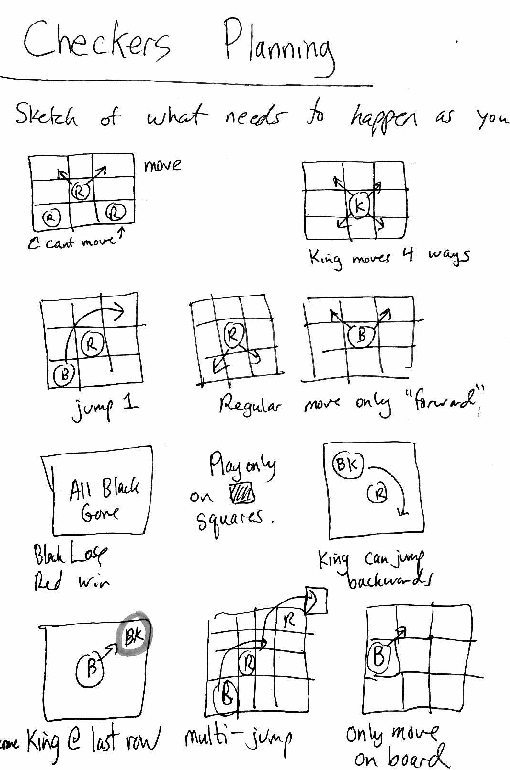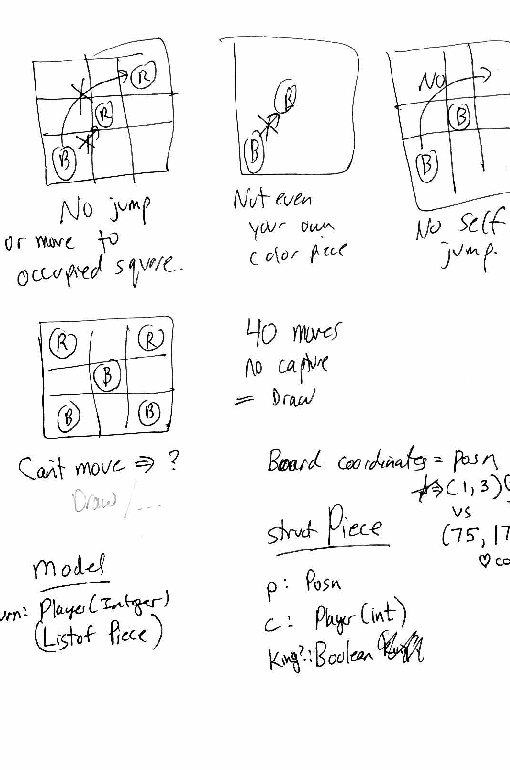Checkers Model
This is the written record of an analysis. You should practice doing your own analysis of a game, not just copying this one.
Examples
Begin with pictures of all of the situations that can come up in the game.
Advanced: enthusiastic software designers may want to read about how user stories used in actual software development.


Board Coordinates
We considered human-friendly coordinates, like (1,4) as well as computer-friendly coordinates like (75, 225). Using computer coordinates would make it easier to write the draw-handler, but writing checks would be easier with human coordinates. We chose human coordinates because checks are important to write.
In this writeup, our board coordinates go from 0 through 7 in each direction.
Piece Structure
p: Posnc: Player (Integer)king?: Boolean
Model Structure
The model keeps track of whose turn it is, where the pieces are, and which piece (if any) is currently selected and ready to move.
turn: Player (Integer)ps: (Listof Piece)selected: Piece
When there is no piece selected, we will put a special piece in the selected location that could not arise in the game: say a king for player 3 located at (-1000,1000).
The fancier way of representing the selected piece is to use the type (Option Piece), but that doesn’t simplify the rest of the work.